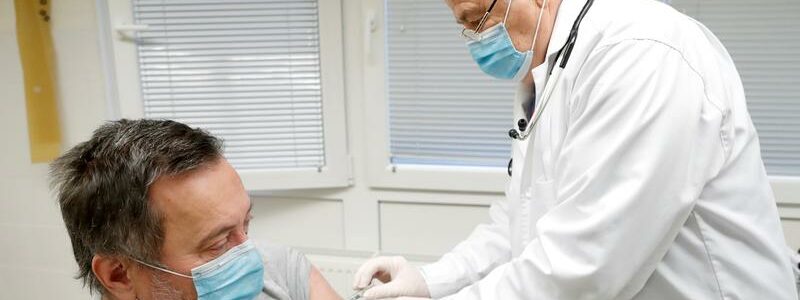
Doctors in Hungary urge volunteers to join overwhelmed COVID-19 wards
(Removes paragraph 7 after the Budapest Semmelweis University said its statement had been dated March 2020.)
BUDAPEST (Reuters) – An appeal went out on Monday for volunteers to join hospital staff treating coronavirus patients in northwestern Hungary, as doctors said COVID-19 wards were overwhelmed, with the pressure only set to mount during the next few weeks.
New infections are surging in Hungary, hard-hit by the third wave of the pandemic, despite vaccination rates at the top of European Union nations, as a proportion of population.
Hungary was the first nation in the bloc to buy and use Chinese or Russian vaccines, as it said shipments from Western suppliers lagged.
Monday’s call, posted on the Facebook page of the Hungarian Medical Chamber in the county of Gyor-Sopron, came just as the nation reported a record number of 11,276 patients in hospital, with 1,340 of them on ventilators.
“The COVID-19 departments in almost all the hospitals are hugely overburdened, there is a shortage of nurses and they are becoming increasingly exhausted,” Laszlo Szijjarto, the chairman of the county chamber, said in the request.
He called for motivated and reliable volunteers to enrol in a 3 hour to 4 hour training course to join hospital staff and assist in monitoring and caring for patients.
The spreading third wave presents a big challenge for nationalist Prime Minister Viktor Orban, who aims to get as many people immunised as quickly as possible to reopen the economy.
Hungary still had plenty of free beds to treat coronavirus patients, Orban said on Friday.
“We haven’t even reached half our capacity yet,” he said, referring to the tally of beds with ventilators, while adding that the number of those free, but without ventilators, exceeded 10,000.
“The question is always whether there are enough doctors and nurses to operate these,” Orban added, saying problems would be resolved.
With just over 1.589 million Hungarians inoculated, Orban said lockdown measures could start to ease once the figure reached 2.5 million, or a quarter of the population.
(Interactive graphic tracking global spread of coronavirus: here)
(This story removes paragraph 7 after the Budapest Semmelweis University said its statement had been dated March 2020.)
Source: Read Full Article